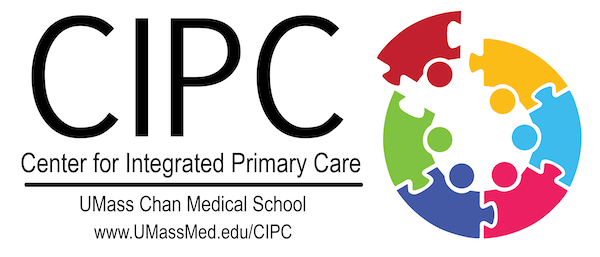Posted On: August 18, 2021

First let me say that the PHQ-9 is a fairly good tool for screening patients and identifying those who have an unmet behavioral health need. While I think computer adaptive testing is a better approach and the way of the future, there are still plenty of settings where a paper and pencil PHQ-9 is the best we can do.
Posted On: July 19, 2021

For years employers in many sectors, including healthcare, have offered funding for continuing education as an employment “benefit.” As healthcare increasingly focuses on quality of care, are there good reasons to think about this investment?
Posted On: May 25, 2021

A Behavioral Health staff huddle at the Barre Family Health Center
Does more integration mean better healthcare? What if you work in a rural practice or in a busy practice in the center of a major city? Dr. Daniel Mullin and colleagues developed the Practice Integration Profile (PIP) to create a measure of integrated primary care that compares practices and monitors integration in a practice over time. Read the post by clicking on the title.
Posted On: February 11, 2021

Current research suggests that Medical Group Visits (MGVs) address the well-known triple aim: improving the experience of care, improving the health of populations, and reducing per capita costs. But what about the quadruple aim, which adds improved clinician experience?
Clinician burnout, especially during the pandemic, is a serious concern for US healthcare delivery. Talented and dedicated clinicians are leaving the profession and there is mounting proof that when clinicians are over-stressed there are negative consequences for patient care.
Read the post by clicking on the title
Posted On: June 15, 2020
Learning to Fly: a journey into teaching and mentoring in IBH

In the midst of a world-wide pandemic, behavioral health needs have grown to epidemic proportions among many who have no history of mental illness, as well as those who have long experienced mental illness. In an analogy that many have used, it often feels like learning to fly while already in the air. From this perspective, I feel compelled, as a health psychologist trained in integrated care, to consider how mental health clinicians may find innovative ways to use their skills in assisting systems of care that need our guidance most.
Posted On: September 15, 2019

Late this spring the CIPC faculty read with interest a special issue of Journal of Clinical Psychology in Medicals Settings on “The Primary Care Behavioral Health Model of Integration”. One particular article caught the attention of CIPC Director, Daniel Mullin. The author, Adrienne A. Williams, PhD discussed in “The Next Step in Integrated Care: Universal Primary Mental Health Providers” the binary view of mental health, either a patient is mentally healthy or is mentally ill. The author cites examples of how this view reinforces stigma associated with seeking mental health services, even within current integrated care models.
Williams suggests as a solution, a primary mental health provider, “In contrast to the binary view, where some people are seen as needing an MHP and others do not, this model would be similar to the primary care model of health and would involve development of primary mental health providers (PMHPs). These PMHPs would be to mental health care what primary care physicians (PCPs) are to physical health care.”
Read More >
Posted On: April 04, 2019
 Our founding director, Dr. Alexander Blount, guest blogs about his new book, "Patient-Centered Primary Care: Getting From Good to Great".
Our founding director, Dr. Alexander Blount, guest blogs about his new book, "Patient-Centered Primary Care: Getting From Good to Great".
Sandy's 1998 volume "Integrated Primary Care: The Future of Medical and Mental Health Collaboration" is one of the foundational texts of the movement to acknowledge the importance of mental health to our physical well-being and to integrate behavioral health care into primary care. Click on the post title to read his blog post explaining how the new volume is the next chapter for IBH.
Posted On: October 26, 2018

New CIPC faculty member, Dr. Paula Gardinar is an advocate of Integrative Medical Group Visits (IMGV).
Seeing patients and families as a group is not new to behavioral health professionals, but it is a more novel approach when the issue being addressed is medical rather than behavioral or a combination of both.
Posted On: June 19, 2018

What you think might be fostering connections to others may actually be amplifying your own critical voice or taking you out of the present moment, hijacking your attention away from your physical company.
Posted On: May 17, 2018

Primary care is an appropriate setting for managing many chronic conditions. Its longitudinal practice of medicine may seem ideal to handle this intractable issue. But modern PC practices are also fast-paced and mostly limited to brief encounters. Obesity cannot be cured in a fifteen-minute consult.
